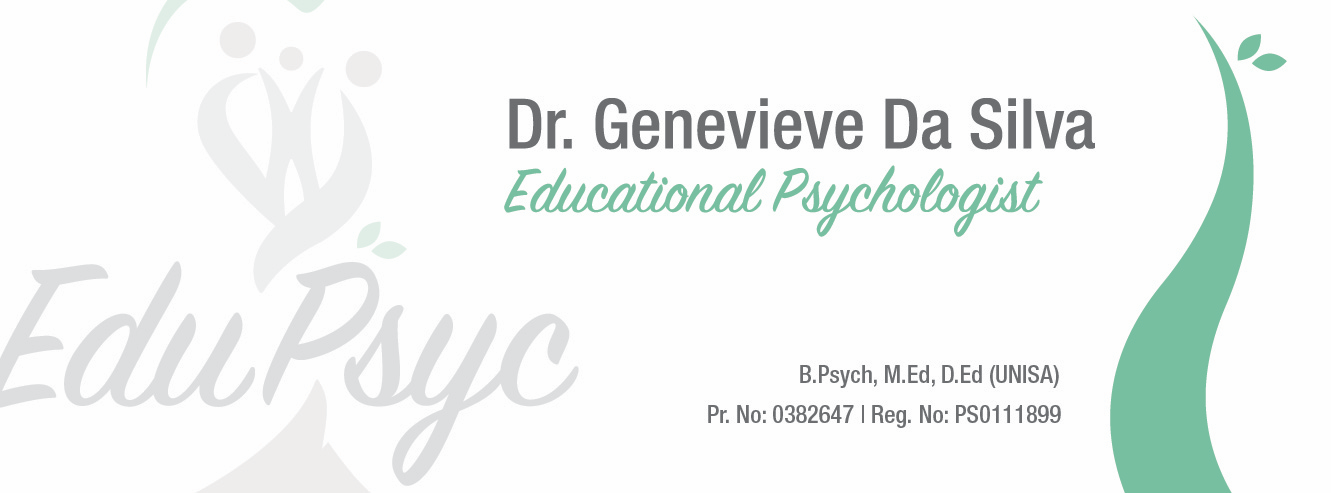During lockdown, we went from sending our children to school, to becoming their teacher’s overnight. As we continue to navigate this challenging and ever-changing time, here are some insights to help you navigate how you work with your children at home.
Tag Archives: parenting
Thuma Mina: A response to COVID-19
At Sunday afternoon lunch, we were still light heartedly discussing the issue of COVID-19. Trying to explain to one another how the virus worked in the body, reiterating hygiene practices, practicing odd gestures for greetings, guessing what measures would be announced by our president later that evening, philosophizing over life and death, trying to understand the impact of this virus among an already vulnerable people group, and still finding ways to explain all that was necessary to our children, for their safety without causing fear.
While I was well aware of the pandemic around the world, it doesn’t quite land with the heaviness it warrants until it’s in your back yard. Watching the news from around the world, even seeing posts on social media from friends abroad, watching the count of confirmed cases rise and charted on the map, it was always someone else’s reality and I was a bystander seeing it unfold.
Until the president gave his address.
Suddenly the full weight of the situation came crashing down around me. Travel bans, visas revoked, public gatherings prohibited – even these seem far removed from me personally.
The president discussed the realities of an economic crisis that loomed ahead and would take years to work our way back out again. Then limiting the use of taxi’s, busses and trains, and schools remaining closed until after Easter. Well that was going to affect me personally. And not just me, but dear people close to me who rely on these services to get to and from work. Work that does not pay much, but barely enough to live.
Now what? If one cannot work, one cannot earn, and without earnings one cannot live. If we struggle with such social ills and poverty in our land now, then what would remain after this disaster had passed?
And then the early discussion of the physical effects of the virus, life and death came flooding back – no longer a commentary from the spectators, but a discussion from within the danger zone. If we do not come together, … I cannot describe the dooms-day images that come to mind.
With my heart broken, my fear increasing, my adrenaline rising and the effort to hold back tears and keep steady as I put my boys to bed, I managed to get myself to a place where I could just absorb the reality. The reality that all I had known and all that I had planned and dreamed 2020 would be was likely out of the window.
But there amongst the ashes was an ember of hope – “Thuma mina”. Of course I could not understand the significance of its meaning immediately, but it was clear that it was placed in the speech purposefully. So I searched.
“Send me”, a song by Hugh Masekela, a legendary musician in our country. This is not the first time our president has alluded to this song, and this idea – Send me!
Based on a scriptural reference:
‘And I heard the voice of the Lord saying, “Whom shall I send, and who will go for us?” Then I said, “Here am I! Send me.”’ – Isaiah 6:8
The song expresses the idea of being a part of the solution to the ills of our country through a helping hand and prayer.
In this crisis, called COVID-19, we have the risk of utter chaos and collapse, but at the same time the opportunity for hope and restoration. We can abandon all reason and give into fear, or we can stand together in love, selflessness and graciously act in generosity and for the greater good. We can further separate ourselves or come together (not physically, of course) in solidarity.
Our perspective of a situation determines our approach to it.
What will yours be today?
What does that mean for you practically?

Back to School
Wishing all learners returning to school for the 2020 school year the very best ahead!
May this year prove to be one that is full of new opportunities for growth and development, and bringing out the unique beauty and strength that lies within your child.

My tummy hurts…
AND OTHER CLUES YOUR CHILD IS STRESSED OUT
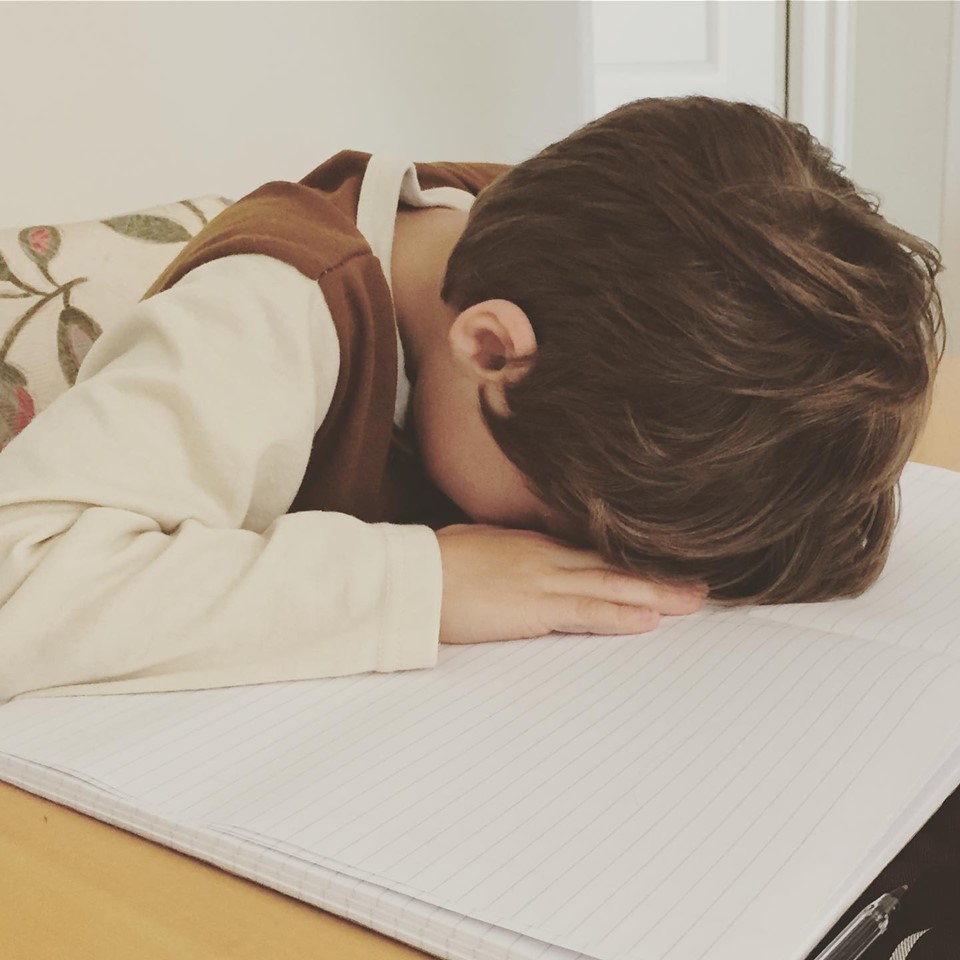
“I don’t want to go to school! I’m sick (fake cough). I just want to stay at home.”
Most mornings, at least one of my kids refuse to get out of bed. And with deep breathes, I aim to get through the morning routine without everything falling apart in and around me. Cooperation is the name of the game when you have 3 small boys (currently 5, 4 and 3) to get ready and out of the house before the peak traffic closes off all exits of your neighbourhood rendering you LATE, yet again. And thatphrase immediately tells me, cooperation is out of the window for today. It’s stressful! It’s stressful for me. It’s stressful for my husband. It’s stressful for my kids. And no one is happy by the time we leave the house. On these mornings, my response can be summed up as – this is life, suck it up, we have a job to do now, let’s get going. And when we finally get in the car, I realise how I gave into my base emotions, let absolute chaos reign and apologise for turning into the mom-monster yet again. (Is it just me?)
But every now and then, I can see that this “I don’t want to go to school” is a bit more serious, and a sign that things are just too much to handle right now. On these days, things run a little differently…
We all have stress – in today’s society, I think this is an understatement. We all have A TRUCK LOAD of stress! But at what point does it become a problem? And how do we know we’ve crossed that line? How do we know if our children have crossed that line, and how do we help them?
What is fear / anxiety / stress?
These three emotions are very closely linked, and can often feel like the same thing.
Fear is a reaction to a present threat, with negative emotions and motivation to escape or avoid danger or threat. (That ice cold, heart thumping feeling when an angry strong individual starts walking straight towards you at a pace.)
Anxiety is a reaction to a future threat, again with negative emotions. The future event can be perceived as something important or difficult. (That uneasy feeling and questioning, ‘will I pass the upcoming exams?’)
Stress is a reaction to a demand that one feels one cannot cope with, or threatens to disrupt one’s life in some way. (That panicky feeling when you have too much to do, in too little time – like loads of homework, along with all the extramural activities. Or getting 3 uncooperative little ones ready before being late.)
All three can be good and necessary for survival and moving forward through difficult circumstances. For example, avoiding confrontations with stronger people, can keep you from physical harm. A little nervousness about an exam or sport event, can encourage you to study or practice harder, and develop your skill. A challenging task can cause you to push yourself to new heights.
The problem is when they become overwhelming and lead to further disruption, or dysfunction (this is where we may to enter into psychological disorders). For example, avoiding all sports or parties or school events because I’m afraid of being attacked. Not being able to concentrate because you believe you will fail the exam no matter how hard you try, till eventually you don’t bother at all. Not being able to sleep because you have too much to do, and your adrenaline is pumping that you can’t shut off at night, and then can’t stay awake in class.
In short, there is definitely a problem when:
- fear remains after threat has disappeared or fear is bigger than the situation warrants
- when worrying about something so much that one can’t even face normal daily tasks
- feeling one cannot cope with daily life and withdrawing from all activity
- becoming physically ill because the body’s defences are depleted from continuous stress.
What are the clues that my child has a problem?
If some stress, fear or anxiety is good, then allowing children to experience it is necessary. We often want to protect our children from what is negative – but a healthy dose is necessary for learning, growth and future success. But, knowing when our children are heading towards something that is harmful, allows us to intervene before it becomes devastating. So how do you know when your child (or yourself) might be headed for the unhealthy version of stress, anxiety or fear? Children express themselves through behavior. If we spend time with our children, and know them well, we will be able to pick up on their behaviours which are out of the ordinary. When children don’t understand what is going on inside of themselves, or they know something is wrong but don’t have the words, they act out. Stress, anxiety and fear may show themselves in the following ways:
- Changes in eating and sleeping habits (too much/too little, nightmares, fears about sleeping, waking odd hours, not falling asleep)
- Physical complaints (stomach aches, headaches, constant illness)
- Change in mood and behavior (demotivated, restless, forgetful, irritable, fighting, bullying, avoiding places/people, clinginess, tantrums, disobedience, oppositional, self-injury, alcohol/drugs)
- Change in school performance (drop in marks, disruptive, impulsive, inattentive, dependent on teacher, incomplete work)
When you notice a significant change in your child, over a period of time, start to ask questions.
What causes of stress/ fear/anxiety?
The causes of stress or fear or anxiety are numerous. In fact, anything can cause a negative emotion. A stressor can happen once, or it can happen over, and over. It can be big and it can be small. Some stressors include:
- Universally threatening events – things generally considered dangerous – crime, bullying, including cyber-, natural disaster, gangsterism, violence in schools
- Major life events – anything that causes disruption – divorce, moving house, changing school, friends leaving, choosing subjects, examinations, parent’s absence, displacement, change of caregivers
- Daily hassles – the small everyday things, that can build up and become taxing – homework, sports, relationships, friendships, traffic, aftercare, change in routine, social media, technology, transport, rushing to get ready
- Demands of life – high expectations to excel, to have certain possessions, popularity, expectations of customs and culture
- Lack of resources – unemployment and poverty, large classes, lack of academic support, lack of parental involvement, personal disconnection due to technology and busyness
What can be done to help a stressed child?
In as much as an event can cause stress, stress is is also caused by the way we think about and interpret events, how we are able to handle our emotions, as well as our temperament and physical response to stress (hormones, brain structure, etc). If we think about children, the younger they are, the more at risk they are – immature brain structure, unable to understand or manage emotions yet, unable to cognitively process events. So as adults, our role is to bring external resources around our children, to reduce the stress they are exposed to, as well as to equip them with coping skills to be able to face stressors and manage them well. Some things we can do as parents, teachers, or whatever role you may have in a child’s life to help include:
- In the moment – stop and breath (this helps the body calm down and process stress physically).
- Talk through daily problems (what they are feeling, why, what can they do, what do they need help with) – find solutions together
- Create time for fun, relaxation and gratitude – this allows the body to produce ‘happy hormones’ and redirect mental focus onto the good.
- Parenting/teaching towards empowering children – develop their strengths and learn how to problem-solve.
- Spend quality time with your child and create a structured and stable environment – children need a safe space, where they know what to expect and need to feel loved and accepted as they are.
- Learn to manage your own stress well, and be an example of how to work through challenges and focus on what is good.
- Make necessary changes – when you come to the place where you or your child are doing what you can to cope, you may need to consider getting away from the stressor.
- When you notice stress/anxiety/fear is becoming overwhelming and interfering with everyday life, ask for help. Speak to someone who can assist you and your child in recongising the causes, understanding the feelings and developing coping skills.
So back to those mornings where not wanting to go to school is a clue that life is just too tough right now… in the midst of the chaos, we stop. We breathe deeper. We risk being late. We ask questions. We hear what the problem is, talk through solutions and end with connection and reassurance. For the most part, we’ve successfully managed to overcome these challenges then and there – other times, we’ve had to make some changes to our lifestyle or have had some tough conversations. Being aware of the clues means we can step in and assist our children before it becomes unmanageable. So be mindful, be present and be aware of what your children are communicating to you. And as you help them navigate the little stressors, you help them develop skills for the long term.
‘Ummm, Can I talk to you about something…?’ Creating openness and trust at home.
When life gets tough, we want our children to know that they can come to us with anything. But an open and trusting parent-child relationship isn’t something that happens by accident. It takes a few intentional choices. Here are 5 things that can add to a healthy, trusting and positive environment that invites openness.
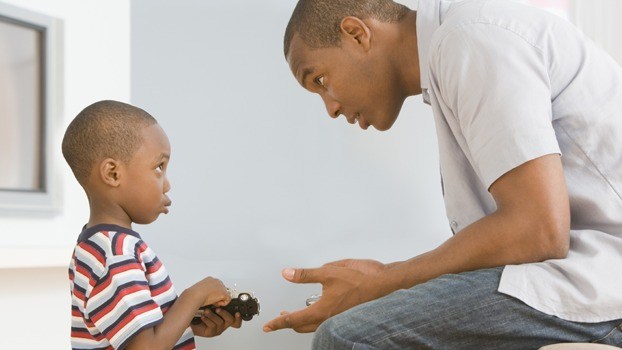
1. Be consistent
Consider an anchor on a ship. It’s role is to hold fast below the surface, when nothing is steady above. It is dependable and will keep a ship from drifting. Consistency in parenting creates a space where children know that what they see is what they get, no matter what. Values are consistent. Rules are consistent. Consequences are consistent. Mom and dad’s response is consistent. It doesn’t matter what might be going on – good or bad – your child can be confident that when they engage you, they know what they are going to get. This creates security. There isn’t an insecurity about the kind of mood you’re in, or if they’re catching you at a good time, or if it might be better to just leave it and not engage, just in case it’s one of ‘those days’. The security of consistency allows children to know that you are you, and they are welcome to approach you with anything and they know your immediate response will not be a guessing game.
2. Discipline firmly and fairly
Discipline is about guidance – not punishment, as many assume. As parents our role is to guide our children through the many opportunities, decisions and circumstances which they encounter and equip them to manage them well. Linked with consistency, if children know that each decision carries consequences, they will in time learn that their choices have power and determine outcomes in their life. This again builds confidence and security. When we discipline fairly and firmly, as opposed to inconsequently and emotionally, our children learn that they have power to be themselves and determine their outcomes instead of being controlled by a powerful ‘other’. Being free to be oneself is part of a healthy relationship.
3. Be honest, genuine, transparent
Nothing ruins a relationship more than dishonesty. For any relationship to thrive, both parties need to have a certain level of trust of one another. Trust is built on honesty, genuineness and transparency. What you see, is who I truly am. This is probably one of the hardest things to do – be the real you. The truth is that we are flawed individuals on our own journey’s towards our full potential. When we put up a front we break trust, we become judgemental and have double standards. Children are very perceptive and quickly realise when adults don’t ‘practice what they preach’. As far as possible, live up to the standards you set for your child – be a good example. But when you fall short, apologise, explain why you did what you did, and what you will change for the better. Use your weaknesses as opportunities to grow, and let your children get a glimpse (age appropriate) of what that growth journey looks like. When children know that you are human, they will feel comfortable sharing their weaknesses and shortcomings, fears and concerns, questions and opinions with you as well.
4. Practice empathy
Empathy is more than feeling for a person – that is sympathy. Empathy is being able to put yourself in someone else’s shoes and see things from their perspective. In fact, it actually goes further than that. Empathy is communicating this understanding to the other person in such a way that they are able to understand what is going on inside of themselves, and empowers them to act on that understanding. Empathy is like being a mirror and providing a reflection of the truth. When we look at ourselves in the mirror we gain understanding as to our present condition and we can choose to do something about it – make-up, hair gel, or nothing. Using every opportunity to understand and reflect what is happening within our children helps us know them for who they are, but allows them to develop a healthy sense of self, and then empowers them to make the necessary changes for positive growth. Empathy might take the form of giving words to emotions when a child is having a tantrum – “I can see that you are angry. Not getting what you want doesn’t feel very nice. But sweets before supper is not allowed. You can be angry, but screaming at me will not change the rule”. It might take place during or after a play date, “It seems that you were disappointed when your friend didn’t want to play the game you wanted. You didn’t say anything and just went along with them anyway. Why was that?” These moments can lead to teaching moments for better choices of behaviour or conversations about deeper issues.
5. Respond to their needs
All people have basic needs. Our behaviour is driven by our needs. If we are observant, our children’s behaviours and responses can tell us what it is that they need. Needs can be anything from basic survival (highly emotional outbursts could be because your child is hungry – a term we at home refer to as HANGRY), safety (your child may need to feel a sense of security by hovering, reach out and hug them, hold them close, rather than sending them away because they’re irritating), belonging (children may need to know you love them no matter what, trying behaviour may be testing whether or not you will truly love them as they say or trying to fit in with the crowd at school), esteem (the move for independence is frustrating when they want to do it their way, but without that space they will never achieve, and we all need to feel a sense of achievement), and self-actualisation (ultimately we all want to be all we can be, meeting the other needs helps a child towards this). Children also have love needs such as quality time, words of affirmation, gifts, acts of service and physical touch. Sometimes their behaviour is communicating that one of these areas are lacking. By responding to our children’s needs we fill up their love tanks and ensure that they are emotionally satisfied. This brings two people in a relationship closer. In healthy adult relationships both parties should seek to fill one another’s tanks. In the parent-child relationship, this responsibility lies solely with the parent. Children may respond to your love with love, but if they don’t remember parents unconditionally love their children but seek personal fulfillment from other adult relationships. Be careful not make your child your emotional crutch by relying on them for love.
As you engage with your child, creating a space where you child knows who you are, and where they can be who they are, where they are loved and their needs are met, and where they are able to understand themselves better and are equipped and encouraged to make choices and move towards better outcomes, you are creating a place of openness and trust and a place where they can feel safe no matter what is going on in their lives.

Living on the other side
Expectancy – anticipatory belief or desire; thinking or hoping that something, especially something good, will happen.Is it any wonder we refer to the time just before having a child as “expecting”.
Some people have endured many months of frustration and worry, trying to fall pregnant. Others have simply been surprised to find two little pink stripes – followed by the words “I don’t know how it happened!” Many await a phone call, “The adoption has gone through”. For others though, there is no waiting. It’s a sudden shift in life, often in the wake of tragedy and loss. Regardless of how of the journey of parenthood begins, prepared or unprepared, most have no clue what lies ahead in the parenting realm.
Becoming a parent is much like immigration. Whether by free choice or necessity, you are moving to a new country – new cultures, people and experiences await you. You’re perhaps excited and nervous or scared and confused. Perhaps you’ve read up about the country or heard things from those who have been there before. You talk about all the things you’re going to do, what your house will look like, what the people are like… on the other side. But in truth, you have no idea until you get there. As you step off the plane, ship or vehicle in this new land, you realise this is no holiday destination. It’s not a momentary experience. It’s a permanent arrangement. You can’t continue as you have before – you are a citizen of a new country and you now have to learn how to live there.
Strangely enough some people think that changing into a parent comes naturally – about as naturally as changing nationality. It takes time, effort and an openness to learn. As you enter this new arena of life, here are some things to consider…
- Acknowledge your feelings.
When changing from one country to another, there is a lot of emotion: excitement, grief, fear, curiosity, confusion. Allow yourself to feel. If you find yourself overwhelmed or insecure, you’re in good company. Most new parents do (most seasoned parents do). Baby blues are quite normal post-birth as hormone rage. Anxiety and low mood can be expected immediately after a major life event. Missing your partner, your pre-parent life, your sleep… yes, you’re allowed to grieve what is gone, or feels gone. Get all those feelings out in the open! Burying your emotions only allows them to morph into bigger, more complex ones. Recognising what we are feeling and why we are feeling a certain way helps us to find ways to work through them and find resolution. Some are highly gifted in being able to do this for themselves, but most of us need help. Talk to your spouse or partner, a friend or a health professional to help you understand where you are at emotionally and walk a journey with you to finding healthy ways to deal with those emotions.
- Explore your surroundings.
When you move to a new place, at first your world is small. You know the route from home to the closest shop, work and maybe one or two other places. But if you want to become part of the community, you need to step out and explore. You take a different route, discover some interesting restaurants, entertainment areas and community hang outs. You start to gain confidence and become settled in your environment. Some of your pre-planning may be in place and can be an anchor that gives you stability in this season of radical change. But sometimes it can also be a weight that holds you down and keeps you stuck in an ideal that is unrealistic. Some things you need to recognise are outside of your control and you need to explore your reality and figure out new ways to manage it well. A sleep routine is important to create stability for you and your new baby, but if your child is screaming for hours and hours in the cot, maybe considering co-sleeping is the better option for you all. What works for your friend or neighbour may not work for you. Consider your personality, pre-existing routines and habits, current needs and long-term goals. See what is working and enjoy the wins. What changes do you need to consider that will be beneficial and practical to ensure your own and your child’s wellbeing? In what area can you compromise? What issues are actually irrelevant? And what are you doing that may actually be harmful? What other ideas are out there that can be helpful? Parenting is a journey of discovery, so don’t be afraid to try and learn.
- Talk to the locals.
The best way to understand a new place and its culture, is to get to know the people. Yes, some seasoned parents are opinionated, judgemental know-it-all’s. But some are open, generous and happy to walk the journey with you, because they’ve been in your shoes, and they remember how hard it was. Reach out to friends who have children, in the same age group or older, and ask them what worked and what didn’t. Speak to the older generation, listen to their wisdom – hindsight is 20/20. Get in touch with parent groups online or in your local community. It is such a relief to know you are not alone, and that your experiences are common experiences.
- Take it all in.
When you first move to a new area, you feel like a tourist. You make the most of the sights and opportunities, because it is all new. But after a while you take it for granted, and miss what’s right in front of you. Every day will hold new tasks, challenges, places to go and things to do. While being a parent is permanent, the stages of childhood fly by faster than you think. Take time to enjoy your child. In the busyness of the day to day, take moments to be present. Watch your baby. Stare into their eyes. Soak up their gummy smile. Hold their tiny hands and kiss their miniature toes. Cuddle your kids. Smell their hair. Listen to them breathe as they sleep. But don’t let this practice dwindle, especially in the challenging times. Mindfulness (being present in the moment) is well known in psychology as a key part in being happier, calmer and less stressed. Throughout the day, make time to just BE with your child.
- Ask for help
Relocating is considered one of the biggest stressors a person can experience. Often because one’s support system is left behind. In order to thrive you need to rebuild a support system around you, and this takes time and effort. As a parent, you need a support system. It takes a village to raise a child. Don’t try and parent on your own. Reach out to your support network of family and friends. Take their offers for date nights, meals and baby-sitting. Ask questions when you visit the baby clinic, social worker or your paediatrician for check-ups. The more questions you ask, the more you are able to learn. Read parenting books and blogs (be careful not to overwhelm yourself with too much information though). Seek parent guidance or therapy from a health professional if needed. Asking for help is not a sign of weakness. In fact, it is a sign of emotional intelligence – a healthy awareness of one’s strength and weaknesses, and engaging in helpful relationships leads to wellbeing.
So, as you start (or maybe you are already well into) this journey of parenthood, may you engage in your parenting experiences with confidence. As you discover this new way of life with another (little) human being, may you create precious moments and fond memories. And as you settle into your new status, may you be brave enough to join with others, create community and together raise your child to be a valuable part of this world.
Password safety for families
Weekend Argus published this article on 8 September 2018
Author: Shanice Naidoo
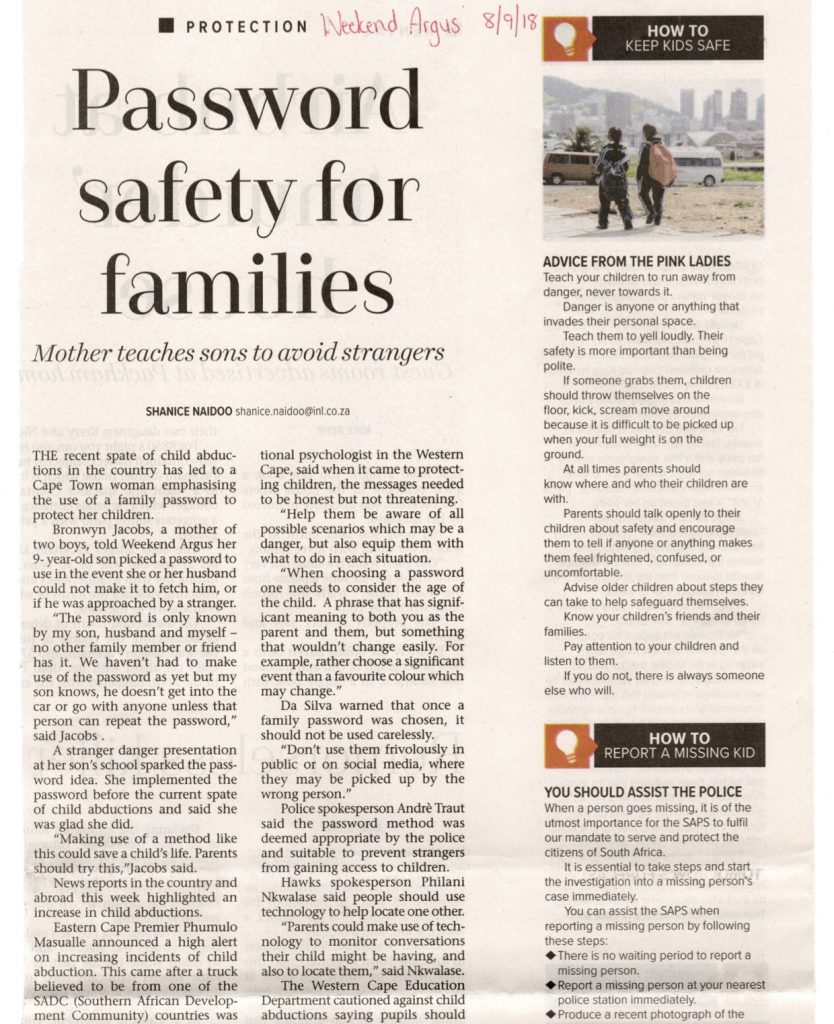

Time is …more than… money.
Time is a precious commodity! Funnily enough it is the one commodity that is shared equally by humanity. There is no stockpile in a specific country. There is no authority that distributes it to the highest bidder. It is given freely and fairly – 24 hours every day. If we think money is precious, and healthy financial functioning depends on wise investments and working within a budget, shouldn’t our approach to time be the same?

The problem is that we spend our 24hours on so much stuff – some important, some trivial. We stretch the time we have to cover more than it should (much like we try to do with our income). It is only after much time and much reflection that we evaluate the time we’ve spent and discover that what is most important to us hasn’t featured as much as we’d hoped. We need to identify what is a wise investment – what gives us a good return? We should evaluate our activities and the time available to us and plan how much time can be spent in these various areas, and where we have to say, “No!”.
One of the wise investment areas is quality time with our children. Investing is about putting a little bit away, regularly, over a long period of time. The earlier you start investing, even a little amount, the greater the return at the end of the investment period. The later your start, the more you have to put in. Often I hear parents complain that they don’t have time – and they feel guilty! I find myself in this place often. We try compensate with expensive toys and games, exhilarating experiences and over-the-top consolations. Every day we promise ourselves to ‘make time’. But the reality is that makingtime is impossible. All we can do is prioritise our time differently.
Moments with our children are priceless – and like time are irreplaceable. The good news is that it is in the everyday moments that our investment grows. Don’t overlook them and don’t underestimate them.

Why not start with one or two of these time deposits every day:
- Read a story together before bed.
- Play dolls or cars instead of watching your early evening soapy.
- Take an extra few minutes to make supper because your little one is your sous-chef for the evening.
- Pack the dishwasher or lunchboxes together.
- Eat dinner or breakfast together around a table – talk to each other about the day.
- Put down your technology, make eye contact. In fact, why not create a technology down time, where everyone’s technology gets turned off at a certain time of the day.
- Take leave for an afternoon to attend a sport match.
- Use the time in the car to talk about what’s important to your child, instead of listening to the radio.
- Walk to school together.
- Ask their opinion on a family decision.
- Ask them to teach you something you don’t know.
- Air guitar together to music you both like.
- Begin a weekend tradition where you engage with one another (Friday Braai Day or Park Run on Saturdays or Sunday Scrabble Wars).
May I encourage you, as a parent, acknowledge that time is your most precious commodity. And time with your children a priceless resource. Fight for it! Do not give it up for trivial pursuits. Prioritise the little things – a certain time to be engaged with your kids in simple ways, every day. It is here that you get to enjoy the precious moments. In the ordinary make extraordinary memories. Begin a wise investment today – small deposits, daily, over time.
How to raise an adult
Clicks Clubcard magazine featured this article in January 2017.
Author: Karen Nel
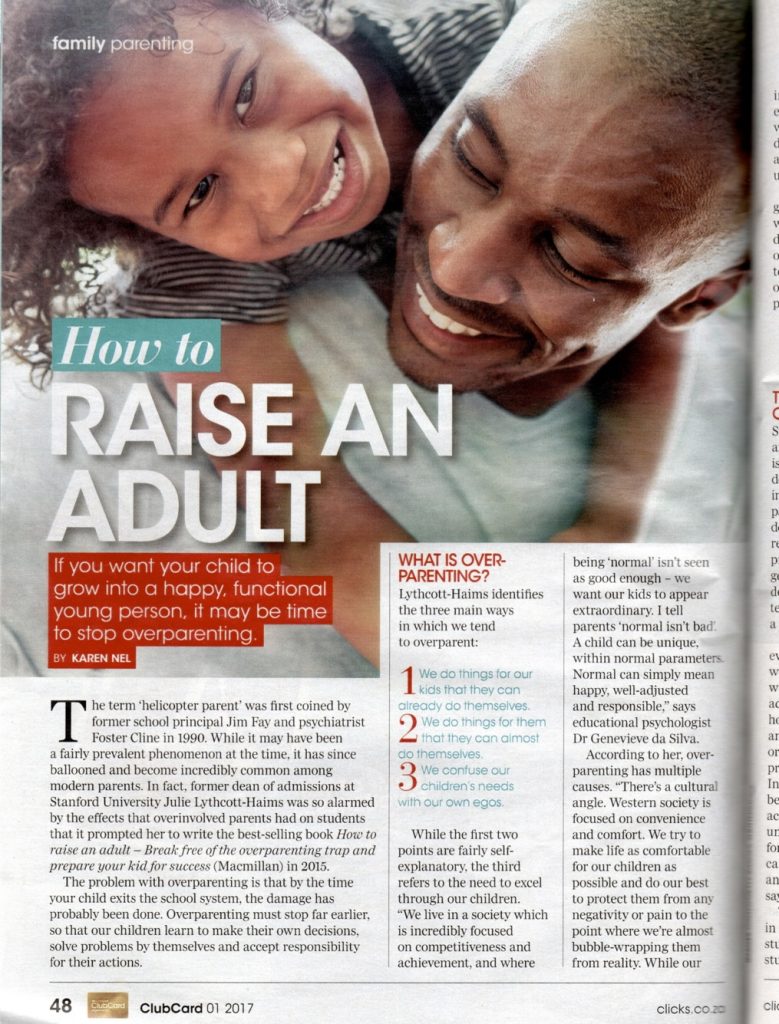
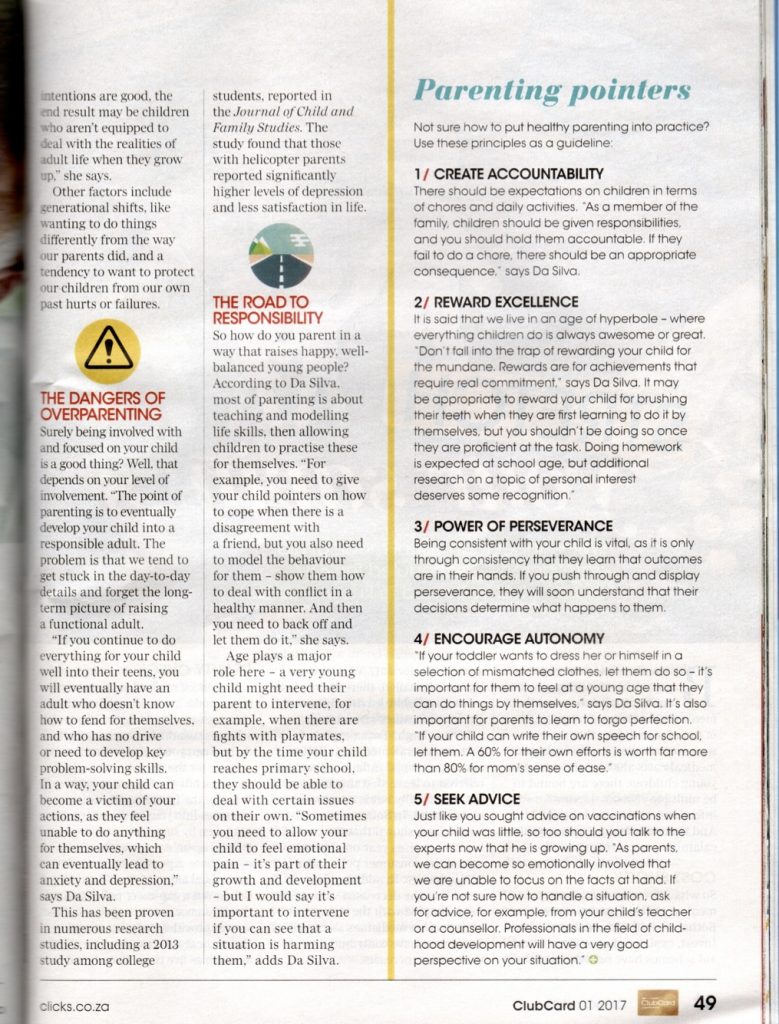
One man’s trash, is another man’s treasure.
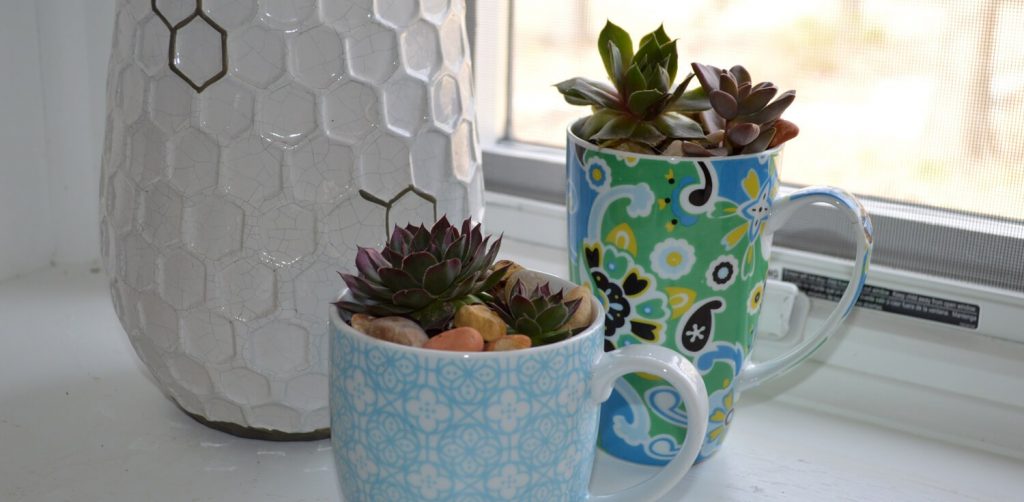
One of the benefits of living in Cape Town is the array of markets one has access to. Artisan foods, craft beers and upcycled products… it’s a wonderland of creative genius. My favourite stalls are run by those who have upcycled what others would have considered rubbish. A cup with a broken handle turned into a beautiful pot plant. An old window frame transformed into a work of art. Scraps of metal moulded into a magnificent baobab tree. What does it take for someone to look beyond the broken and see the potential?
A different perspective.
Our approach in society is very much the same. There are two main perspectives in how we perceive and behave towards others who are different. The first is to focus on the problem. In psychology, this is known as the needs-based or medical model. Thanks to the wonders of modern medicine over the last few centuries, we’ve been able to isolate the root cause of diseases and find cures and preventions. However, it has also caused us to replicate this way of thinking in our everyday lives. “What’s the problem?” We ask ourselves.
As parents, we might see that our child’s behaviour is unacceptable and ask, “What’s wrong with this kid?” We might go further to ask, “What is happening at school? What am I doing wrong?” As a teacher, we may notice that a child is unable to complete the required tasks and think, “What’s wrong with this student?” We might have the insight to ask, “What is happening at home? Is there something going on in class? Am I doing something wrong?” These questions can help us unearth difficulties and challenges within and around a child.
Unfortunately, one problem just leads to another problem, and another, and another. It can leave us feeling overwhelmed, paralysed and disheartened. When all we can see is the problem, the person gets lost, labelled and belittled – the ADHD kid, the bully, the slow learner, the uncooperative one, the unavailable parent, the incompetent teacher… Much like the trash we so easily discard once it breaks, we discard the individual and replace them with a generalisation.
On the other hand, a different perspective is one that acknowledges that there is a problem. But it shifts the focus onto the skills and resources available. Strengths not only in the person, but around the person. This is known as an asset-based approach. This perspective requires a complete shift in thinking. Instead of asking, “What is wrong?” We ask, “What is useful?”
While a cup without a handle may not be suitable for drinking tea, it is still useful for holding substance – soil, a succulent, and some pebbles. A glassless window frame cannot keep the wind out of a house, but it can frame some precious memories. The asset-based approach recognises that the original design is not being achieved, but that the usefulness of product lies within its unique makeup. Instead of just seeing the child’s problem, we see the strengths of the child and utilise them to his or her benefit. We recognise that there may be difficulties within class, or home, or school, but we find those areas where the child flourishes and use them to his or her advantage. We build on the strengths so that the child has resources available to overcome the challenges. We recognise the individual’s uniqueness and see his or her potential for the future.
It means looking beyond the problem, and seeing the person.
